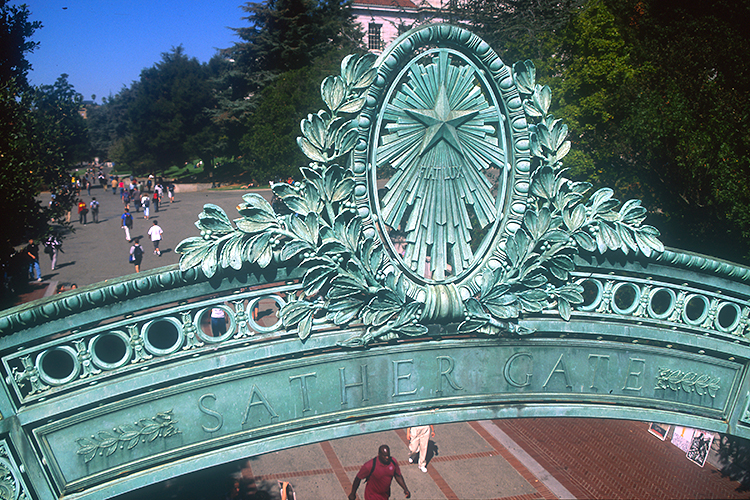Celebrating National Arab American Heritage Month
This is the first time we are honoring National Arab American Heritage Month since the State Department began officially recognizing the Arab American community with a month-long celebration in April 2021.

April 5, 2022
Vice Chancellor for Equity and Inclusion Dania Matos, Program Manager, SSWANA Initiative Doaa Dorgham, Vice Provost for the Faculty Benjamin E. Hermalin, Vice Chancellor for Student Affairs Stephen C. Sutton, and Chief People and Culture Officer Eugene Whitlock sent the following message to the campus community Monday:
During the month of April, our campus will be celebrating National Arab American Heritage Month (NAAHM), which focuses on the diverse culture, history and contributions of the 3.7 million Arab Americans in the United States. This is the first time we are honoring National Arab American Heritage Month since the State Department began officially recognizing the Arab American community with a month-long celebration in April 2021.
Learning about the Arab American community
Arab Americans trace their ancestry to one of 22 Arabic-speaking countries that stretch across Northern Africa and into Western Asia. A shared linguist connection links a community composed of incredibly diverse religious and racial identities.
Arabs have a long history in North America, dating back to as early as the 1600s. While Arab Americans might make up a greater percentage of the population of some other states like New York, Michigan and Illinois, California is home to the largest Arab American population in the United States. From Hollywood to Sacramento, Arab Americans have been actively involved in the cultural and political life of the state. Significant Palestinian, Syrian, Lebanese and Yemeni communities have resided in California since at least the early 20th century. Early migration patterns were often shaped by economic opportunities, while later communities arrived fleeing war and conflict in their homelands. You can learn more about Arab migration to the United States by viewing the Arab American National Museum’s “Coming to America” online exhibit.
Anti-Arab discrimination and Islamophobia continue to be significant issues in the post-9/11 world, and Arab Americans’ lived experiences of racism and struggles for social justice have shaped their communal and political identities. Berkeley’s Center for Race and Gender explores this impact on the Arab American community. Although Arabs worldwide are racially and ethnically diverse, with Arab countries such as Sudan and Somalia being predominantly Black, most Arab Americans are classified by the U.S. Census as “white”; many Arab Americans, however, disagree with this classification and instead identify with communities of color.
Celebrating Arab American contributions
Arab Americans have made numerous contributions to virtually every aspect of American society: in medicine, law, business, education, technology, government and culture. Alumna and documentary filmmaker Sara Maamouri challenged stereotypes about Arabs through the film We Are Not Princesses. Alumna and advocate Zena Amran helped lead efforts to provide people experiencing homelessness with basic menstrual hygiene supplies.
Campus resources
On-campus, we have several resources to support the Arab American community, including The South Asian, Southwest Asian, and North African (SSWANA) Initiative, the Chancellor’s Advisory Committee on Muslim and Palestinian Student Life and Campus Experience, MENASA (Middle Eastern, North African, South Asian) Staff Organization, and University Health Services resources for SSWANA students. Locally, you can also visit the Arab Cultural and Community Center in San Francisco.
The Berkeley Center for Middle Eastern Studies has a number of events in April. Additionally, two Berkeley student organizations, the Middle Eastern Business Association (MEBA) and Middle Eastern North-African Recruitment and Retention Center (MENARRC), are hosting “United Through Laughter,” a comedy show headlined by Lebanese American comedian Nemr Abou–Nassar, on April 14 (learn more about Arab student organizations). The MENASA staff organization is hosting a virtual baklava cook-a-long on April 15. The SSWANA Initiative and the Center for Middle Eastern Studies are hosting a screening of the award-winning documentary film JADDOLAND on April 21. The Asian American Research Center, the Center for Middle Eastern Studies, and SSWANA will be hosting a panel on “Arab American Studies: What It Is and Why It Matters” on April 28.
We hope you will join us in not only educating yourselves but celebrating the critical contributions and rich culture of our Arab American community.